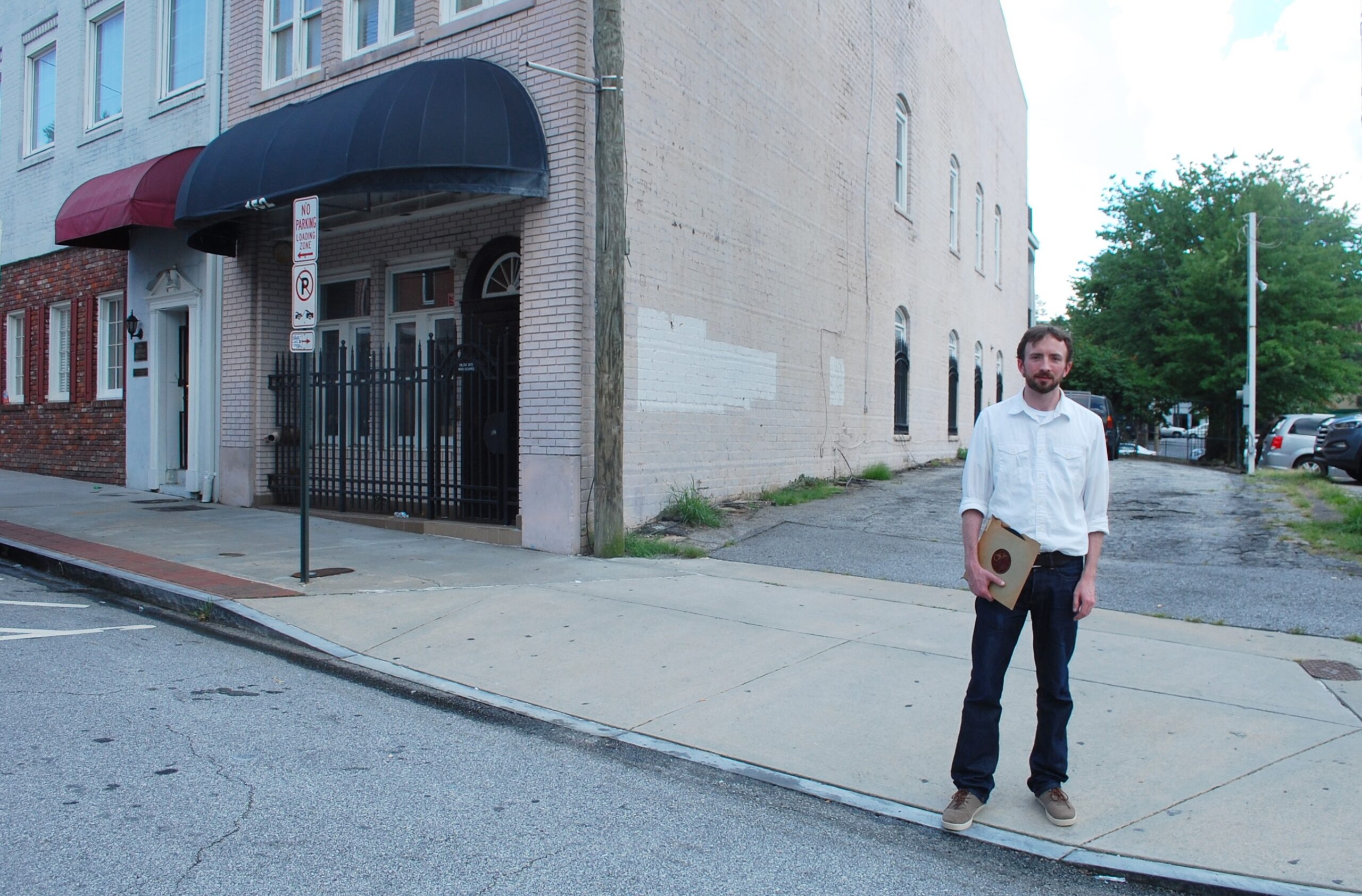First Country Music Hit Traced Back To Atlanta Building

Stephannie Stokes / WABE
The city of Atlanta wants to give landmark status to an old downtown building with a little-known claim to fame.
With both Centennial Olympic Park and the SkyView Ferris Wheel next door, it’s unlikely the structure at the end of Nassau street would catch your attention.
“It’s a fairly nondescript, 1920s brick building, two stories,” said Kyle Kessler, standing in front of 152 Nassau Street.
But Kessler, a local architect, recently discovered something remarkable about it. He found an article from the 1920s in the Atlanta Independent.
“They had a front-page article saying that Okeh Records was coming to town and going to set up a recording laboratory at this particular address on Nassau Street,” Kessler said.
The laboratory was a pop-up music studio and one of the first efforts to record musicians in the South.
The sessions included black blues singers like Fannie May Goosby and Lucille Bogan. And also a white fiddler, Fiddlin’ John Carson, who recorded the “Little Old Cabin In The Lane.”
Carson’s record went down in history. The song turned into a national sensation.
“This hit record that John Carson made on Nassau Street became this thing that put Atlanta on the map,” said Lance Ledbetter, founder and co-director of the record label of Dust to Digital.
Carson’s reputation includes a dark side. Historian James Cobb links Carson’s earlier song “The Ballad of Little Mary Phagan” to the anti-semitism that led to the 1913 Leo Frank lynching.
But, Ledbetter said, Carson’s recording in 1923 in that little brick building marked the beginning of country as a hit genre in the country. And so, after it, all ears were tuned to Atlanta.
“It’s not very well known, but at one point, Atlanta was the country music capital of the entire world,” Ledbetter said.
Since the 20s, Atlanta’s title in the country music industry has been forgotten, and so was the location of those early recordings.
But now that Kessler linked it to this Nassau Street address, he thinks the building deserves preserving.
“We never know where history’s going to take place,” Kessler said. “The building here, for that one week or so, is where it all happened.”
The Atlanta City Council still has to approve the building’s designation. At a recent public hearing, the company buying the property said it had other plans for the land.
9(MDAxODM0MDY4MDEyMTY4NDA3MzI3YjkzMw004))








